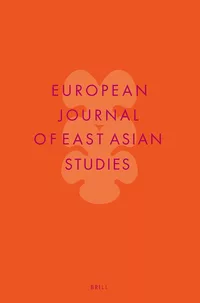Review of the Research on the Belt and Road Initiative in Myanmar
Publication Description
The Belt and Road Initiative (BRI) is among the largest transnational development initiatives globally. In this article, we review the research on the BRI in Myanmar, a developing country that is of considerable geopolitical importance. To date, the BRI literature has made three central contributions: it has captured much of the complexity of BRI projects, filled a notable research gap in BRI studies, and raised awareness of local voices. In addition, two analytically meaningful topics are worth exploring, namely the contested relations (1) between China’s Ministry of Foreign Affairs and prospective Chinese BRI investors and (2) between the Myanmar government and local anti-BRI groups. Responding to the current focus of the literature and to advance future research, we recommend that scholars consider the analytical framework of state transformation to disaggregate statehood, account for diverse actors, and explain their contested relations. Because it challenges state-centric frameworks (e.g., realism and Westphalian national sovereignty), the state-transformation model can yield theoretically and empirically stimulating findings.
Online publication: https://brill.com/view/journals/ejea/22/3/article-p229_2.xml
date: 14 Dec 2023

